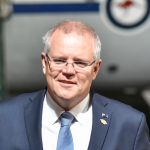New dogs, old tricks


By Greg Eatock
Little children ARE sacred, which is why the NT intervention has to stop.
The Howard government’s decision to create a blanket punitive approach to instances of child abuse in the Top End has been a disaster for Aboriginal communities throughout the Northern Territory.
Garnishing welfare payments, and returning to a system of ration cards has forced a tremendous upheaval and heartache. Not only is it degrading and humiliating for many Aboriginal people to be using the cards rather than controlling their own money, it is also forcing thousands to flee remote communities for urban settings, which were already over crowded and bereft of basic services.
Community stores; the only viable business in many remote communities, are losing customers, as the payment system forces people to use large chains like Woolworths and Coles, rather than their local stores.
The Community Development Employment Program, which funded the delivery of basic services in many communities, has been suspended, leaving hundreds of people without an income and communities without resources to fund services like rubbish collection and maintenance.
Moreover the suspension of the permit system, which enabled Aboriginal communities to control who entered their lands and under what terms, has left many powerless to prevent complete strangers from coming into their homes.
As English is often their third or forth language, many Aboriginal people in the NT simply don’t understand what is happening, or why they are not able to use their local shops anymore, and are fleeing their homelands.
They are ending up in places like Bagot Town Camp on the outskirts of Darwin, where the population has doubled in the last couple of months. There are now 1200 people crammed into 57 dilapidated houses, sharing just a handful of fridges and faulty stoves between them.
Many more have moved into the “long grass” areas on the outskirts of Darwin, where they have been subject to police raids and violence. In Alice Springs recently 188 people were arrested in a single night, 121, for drinking in a proscribed area, while many youths were detained without charge.
In order to do all this the Government had to suspend the NT’s Anti-Discrimination Act 1992, so they could target the policy specifically at Aboriginal people. No one’s calling it apartheid, but if there’s one lot of rules for whites and another for blacks, then apartheid is the only word for it.
Our children are sacred, and we want to protect them as much as any parents, but the NT Intervention is causing nothing but pain and suffering, and should be immediately suspended.
If Jenny Macklin is serious about protecting children she’ll move to reintroduce the anti-discrimination act and roll back the intervention, and if Kevin Rudd was serious about the apology he’ll come to the table to create a treaty settlement.
The only way we can make up for decades of neglect it to enable Aboriginal people to regain control of their lives, instead the government going back into the bad old days of control and segregation.
It didn’t work last time, so why are we making all the same mistakes again?
Sydney-based Aboriginal activist Greg Eatock has spent decades fighting for the rights of Aboriginal people all over Australia. He is currently the spokesperson for the Sydney Aboriginal Rights Coalition. Photo republished courtesy of The Koori Mail.
Open Forum is an interactive policy discussion website hosted and moderated by Global Access Partners (GAP).











Nick Mallory
April 15, 2008 at 4:28 am
A New Trick
I chanced to hear a report on Radio National the other day lamenting the failure of nurses to offer thirteen year old aboriginal girls the cervical cancer vaccine so often lauded as a success of Australian science. The problem, it seems, is that the parents of these girls are not sending them to school where the inoculations are carried out and, even when they are, the girls have all too often already been sexually abused and so already carry the cancer causing virus. The presenter did not suggest that the authorities insist on the proper education of these girls, nor that they should be protected from statutory rape when barely past puberty, no the obvious solution was to send nurses to their homes and attempt to inoculate them by the age of eight or nine before it was too late. The lack of shock expressed about this terrible state of affairs was one of the shocking things about it.
The intervention in the Northern Territories was carried out in an attempt to tackle long standing, endemic problems of drunkenness and rampant sexual abuse which no amount of politically correct special pleading or welfare provision has acknowledged over recent decades, never mind try to eradicate. Indeed if a population lives dependent on the State from the cradle to the grave and falls into hopeless squalor and despair as a result then it is this dependency which is the underlying problem. Passive welfare dependence has proved a disaster for the fast growing Aborigine population and, as Mr Eatock himself says, "It didn't work last time, so why are we making all the same mistakes again?"
Respected Aboriginal leaders such as lawyer Noel Pearson, director of the Cape York Institute for Policy and Leadership, have long advocated a better way forward to rescue their communities from the discredited paternalistic authoritarianism to which certain white activists still cling long after its utter failure has become clear to everyone else. Far from advocating a return to the free hand outs espoused by Mr Eatock, Mr Pearson's plan calls for conditions to be attached to all welfare payments from now on.
Mr Eatock chose not to reflect on the fact that ration cards were introduced because monetary payments were being spent on alcohol rather than food and families were going hungry as a result. He also chose to ignore the reality that the permit system was suspended and 'complete strangers were allowed into their homes' to try to stop children being raped by those who should be caring for them. As Mr Pearson pointed out in a TV interview on the ABC, surely there must be "…an end to the day when you as an adult can abuse the money that you get, don't use it for the benefit of the kids, use it for drinking, use it for gambling, use it for drugs and create living hell for your children. That day has got to come to an end."
"No one's calling it apartheid, but if there's one lot of rules for whites and another for blacks, then apartheid is the only word for it." writes Mr Eatock, well indeed, that is the case. If a large group of white teenagers were drinking in a "dry" park in Melbourne wouldn't they also be arrested or moved on by the police? Shouldn't aboriginal girls in the Northern Territories be protected by the same laws regarding the age of consent as any white girl in Sydney? Shouldn't child rapists be convicted and punished rather than the crime simply be ignored for perverse reasons of political correctness? Yes, Mr Eatock, Aborigines have the same rights and responsibilities as any other Australian citizen. What sort of perverse racism on your part holds them to a lower standard than anyone else? Criticising the measures taken to protect the most vulnerable members of these communities simply gives a free pass to those truly responsible for the problem.
As Mr Pearson said on Lateline, five days after the emergency measures were announced "I'm amazed that anybody would put the protection of children secondary to anything, particularly when those children are subject to imminent abuse, abuse that takes place on a regular basis that's the subject of binge drinking, week in, week out. I'm just amazed that anybody would put the protection of children secondary to anything else. I think that those who have objections to immediate intervention have to ask themselves whether they're willing this whole exercise to fail, and geez, if you're willing the whole exercise to fail, what kind of priorities do you have in relation to the wellbeing of Indigenous children?" This is a question Mr Eatock perhaps might like to ponder.
In condemning those who "wish failure upon any decisive action that's going to deliver some relief of suffering to vulnerable children" Mr Pearson pointed out "…the horrendous thing here. That the people who are nay saying any kind of intervention are people whose children, like my own, sleep safely at night. I think that's a terrible indulgence." Let us remember that Mr Eaton began his piece by proclaiming that he believed 'little children ARE sacred' but instead of suggesting effective measures to protect them from rampant neglect and abuse he did nothing be criticise the measures taken by the authorities in an effort to protect them.
Mr Pearson was clear what he thought about such attitudes "You know, I hear people bleat uphill and down about self-determination and in my view self-determination is about people taking responsibility for themselves, for their own families and for their communities and, you know, it's an absolutely shameful hour that has descended on us, absolutely shameful hour where even an emergency intervention to protect the safety of our children is hindered, is hindered by people who supposedly have good will for Aboriginal people and in fact, those people are willing, they are willing the protection and succour to Aboriginal children to fail in the same way and as vehemently as they will failure in Iraq."
It may be true that an old dog cannot learn anything new. Perhaps those so proud to have been aboriginal activists over decades which have seen nothing but welfare dependent decay in aboriginal communities and the unchecked build up of appalling social norms which necessitated the special measures now underway might retire gracefully from the scene and pass the torch of advocacy on to those, such as Mr Pearson, more open to fresh solutions?
ckutay
April 24, 2008 at 12:31 pm
Re: Old Dog New tricks
Unfortunately what Greg Eatock reports, is well informed. Nick Mallory is worried Greg ignored some points, but Nick ignores the history of the Australian government choosing Aboriginal leaders who may not be seen by the community as spokespeople.
Nick also ignores the effect on all children in Sydney where all the child support measures promoted in the NT have been functioning for many years, yet with ongoing deaths and abuse of children here.
The measures which Greg opposes seem to have little to do with the abuse of children. For example, all prescribed communities had alcohol bans except one, so this issue was being dealt with in the community.
There is a need for a severe rethink of how to approach the problem. As both contributors note, the problem is not isolated from the economic and social condition of the community, and this will not be improved by intervention and outside control.
Many programs have been ongoing in Alice Springs and the NT for many years to tackle violence. It is time these community programs had some external recognition and support, instead of being bypassed when people want to show they are doing something for Aboriginal people, rather than with them